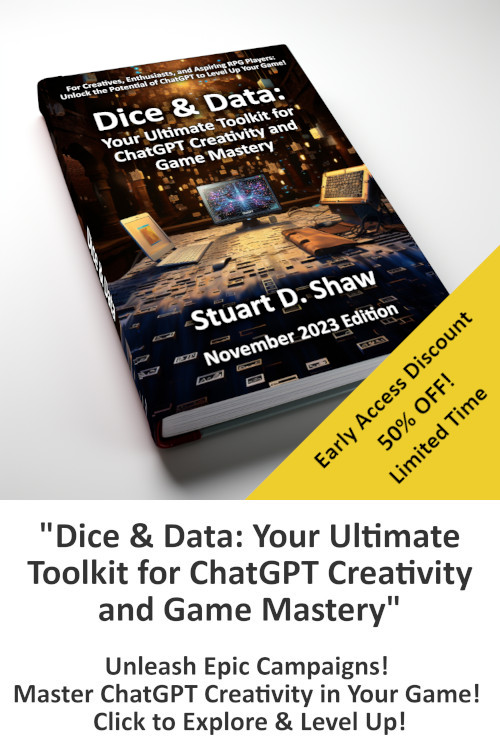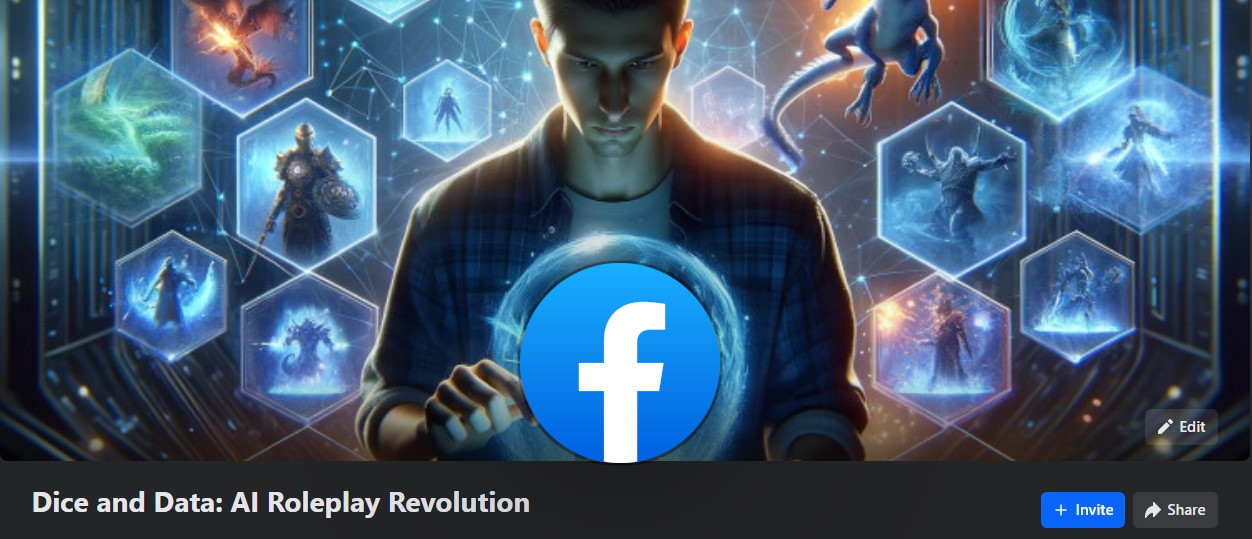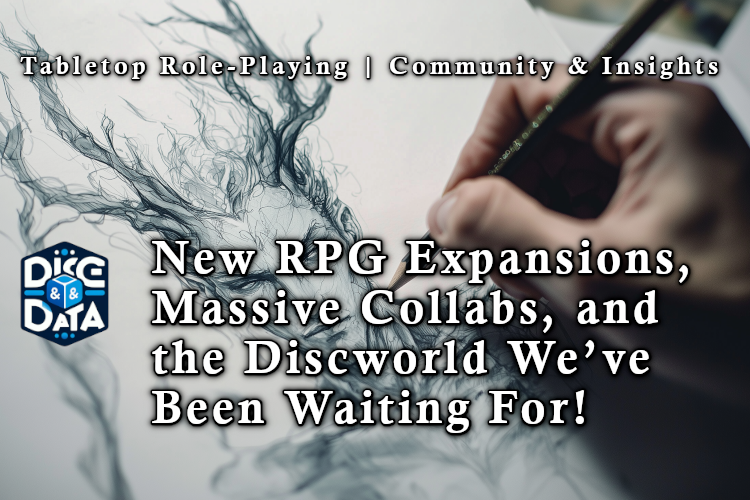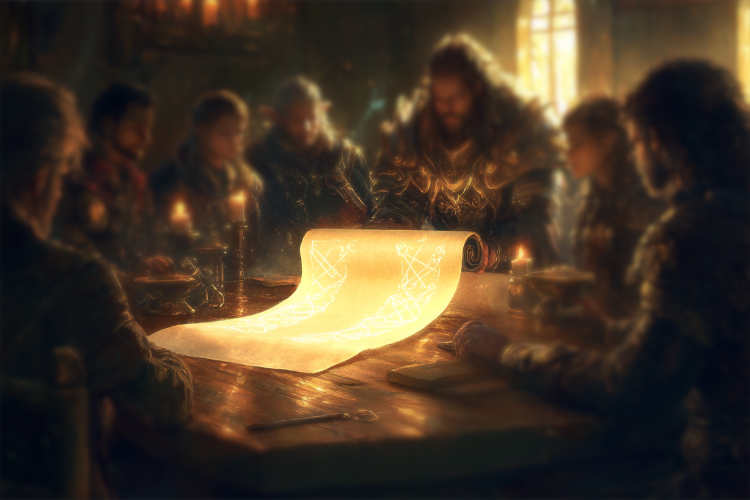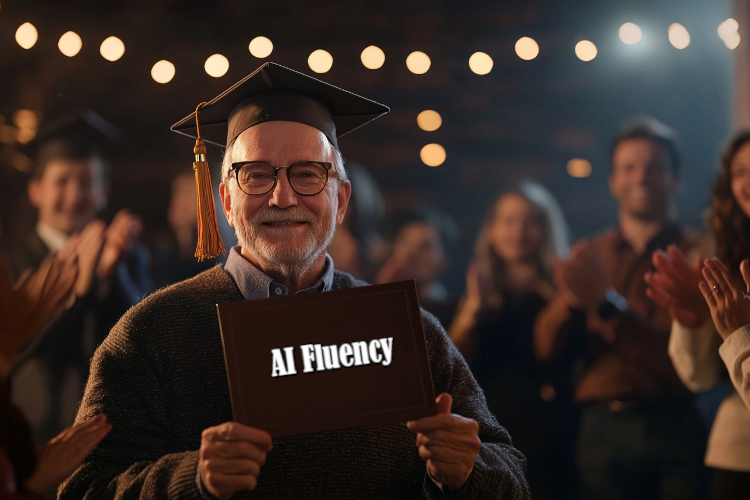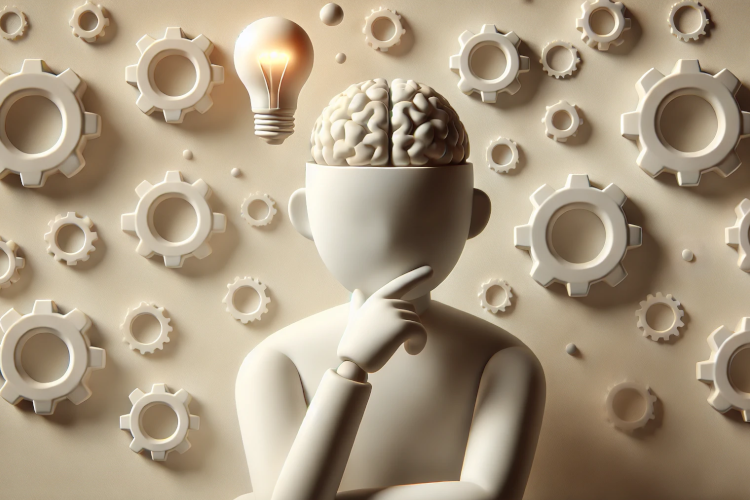
- Home
- RPG AI Blog
- AI and the Future of TTRPGs
Striking the Balance: AI and the Future of TTRPGs
AI is an undeniable disrupter, already shaking up industries from creative arts to data science. As someone at the forefront of AI in my professional sphere, I've seen firsthand how it's transforming job roles and reshaping expectations. But AI isn't just a tech revolution—it presents a challenge we must carefully navigate, especially in creative spaces. This isn't about pitting "pro-AI" against "anti-AI." It's about finding a critical middle ground, where AI enhances human creativity without overwhelming it. In my field, data science, AI offers incredible efficiencies, yet it also requires us to rethink how we engage with our work. The same question looms over tabletop role-playing games (TTRPGs): can AI improve the gaming experience without overshadowing the human elements that make it so unique?
At the heart of this discussion is balance—using AI as a tool to amplify creativity while ensuring the authenticity and communal spirit of TTRPGs are preserved. Only through open, thoughtful dialogue will we find the right mix, allowing AI to enrich, rather than replace, the imagination-driven nature of gaming.
AI: Tool, Not a Replacement
In the world of data science, AI is reshaping everything. The days of manually crunching numbers, analyzing call data, and building dashboards are disappearing. In their place, we’re becoming curators of datasets for AI training, validators, and guides for stakeholders who need to understand the complex insights these AI systems generate. It’s a seismic shift—one that, if mishandled, could cost jobs. But, I’d argue, in most cases, AI doesn’t reduce work. If anything, it just shifts the focus. In my world, it’s not about automating away responsibilities but about delivering faster, more detailed insights. And at its best, AI helps us deliver those insights with nuance, adding layers of depth we wouldn’t have the time to discover ourselves.
This experience translates somewhat to the TTRPG space, but let’s be clear: AI cannot, and should not, replace the core magic of role-playing games. Sure, it can be a fantastic tool for dungeon masters and players. AI can generate NPCs, craft dungeon maps, or even spin up story ideas when you're short on inspiration. It can offer convenience, speeding up preparation time and adding depth to world-building. But those conveniences don't capture the essence of what TTRPGs are all about—the spontaneous, creative chaos of human interaction.
TTRPGs thrive on unpredictability. That’s where the magic lies. It’s in the players reacting to a twist, making absurd decisions, or playing off each other in ways no AI could predict. AI can streamline the grunt work, but it cannot replicate the joy of shared imagination, the camaraderie around the table, or the sheer unpredictability that human players bring to the game. It can assist, but it will never replace the storyteller.

Critical AI: Finding the Middle Ground
So how do we engage with AI responsibly? The first step is to move beyond the binary "pro" or "anti" AI mindset that so often dominates discussions. We need a more critical approach, one that asks when, where, and how AI should be used, and what it adds to the experience. I believe we should focus on using AI where it truly benefits us—helping with tedious tasks, speeding up preparation, or even serving as a creative springboard when writer's block hits. In TTRPGs, this might mean using AI to fill in the details, like generating random encounters or crafting atmospheric descriptions. The key is not to let it dominate the narrative.
The problem with the "pro-AI" camp is that they sometimes see AI as the answer to everything. On the other hand, the "anti-AI" crowd often fears losing the soul of their craft to an algorithm. But we don't have to choose one extreme or the other. We can adopt a balanced, thoughtful approach. AI, when used critically, offers immense benefits. In TTRPGs, it could make campaigns richer, more immersive, and more diverse—if, and only if, it remains a tool to assist rather than a crutch that replaces creativity.
In my professional life, I’ve seen how AI can be a double-edged sword. In data science, AI can process data faster than any human, delivering insights that are sharper and more comprehensive. But it’s only valuable if we, the humans, still play a role in validating, guiding, and interpreting those insights. Left unchecked, AI can deliver results that lack the nuance and context only a person can provide. The same holds true for TTRPGs. The AI might create a perfectly structured NPC or a flawless dungeon layout, but it won’t inject personality or adapt to the whims of the players. That’s where the human element is irreplaceable.

The Future of AI and TTRPGs
Looking forward, the future of AI in TTRPGs is both exciting and uncertain. AI will no doubt play a larger role as it becomes more advanced and accessible. We may see more AI-driven tools that help dungeon masters craft expansive worlds or generate entire campaign arcs. But I’ll say it again: AI should remain an enhancement, not a replacement. The human element must always be central. TTRPGs are, at their core, about people—about storytelling, collaboration, and shared imagination. AI can help us do more, but it can never replace the unique magic that happens when a group of friends sits down to play.
If we embrace AI critically—using it to enhance gameplay rather than dominate it—I see enormous potential. We could experience richer, more immersive worlds, with AI handling the logistical side of things, allowing us to focus on the creativity and spontaneity that makes gaming so rewarding. But it all comes back to balance. We need to ensure AI serves us and not the other way around.
The conversation about AI in TTRPGs needs to evolve past fear or blind enthusiasm. We need to ask tough questions: does this tool improve the game, or does it make it feel mechanical? Does it inspire creativity, or does it stifle it? Does it complement the storytelling, or does it get in the way? These are the questions we should be asking, and they are critical to ensuring we don’t lose sight of what makes role-playing games so special.
In conclusion, AI is a tool, not a threat—but only if we use it wisely. By fostering an open, thoughtful dialogue about its role, we can ensure that AI enhances the gaming experience without overshadowing the irreplaceable human touch. The future of AI in TTRPGs is what we make it, and as long as we approach it critically and responsibly, there’s no limit to the creativity it can help unlock. Let's strike that balance, ensuring AI works alongside us to amplify, not replace, the shared stories we create at the table.

Written by Stuart Shaw, a 40-year veteran of tabletop role-playing games. His journey started with Dungeons & Dragons in 1983, and he is the author of "Dice and Data: Your Ultimate Toolkit for ChatGPT Creativity and Game Mastery". Stuart is eager to share his passion and expertise with the world and enjoys writing about news and innovations in the RPG world. Join him on an exciting adventure into the world of TTRPGs. About me.
